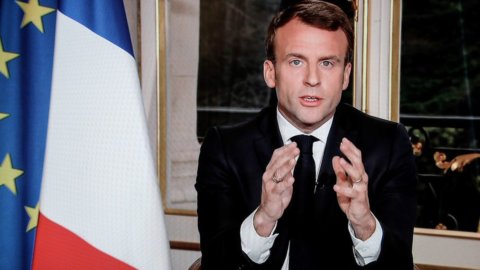And, in the end, what liberalization it is. We are not talking about what the Monti government is carrying out in Italy amid a thousand obstacles, but about theopening up China's financial markets to foreign capital.
It seems in fact, according to what the Financial Times, that China is ready for the historic turning point: after three decades of exponential growth, which have led it to be the second largest economy in the world, it is finally about to liberalize capital movements, also opening up to foreign investments. Something that Beijing had so far been careful not to do, closed in the conservatism of the regime it has always imposed strict government controls on capital flows to shield its economy from the international financial crisis.
But the fort is about to fall, under pressure from the International Monetary Fund and above all from the World Bank, which in collaboration with an important think-tank in Beijing is pushing the Asian giant to start this liberalization process. This invitation has so far been accepted, despite some resistance, by premier Wen Jiabao: "It's a priority of the government," he said.
A belief corroborated by the opinion of several analysts, including Liu Ligang of ANZ, who opens more than one glimmer on the pages of Ft: “The resistance against liberalization is no longer as fast and strong as before".
In fact, around Tiananmen Square they will be realizing that trapping money in China, data in hand, has led to soaring property prices and ever-higher inflation. And at the same time, opening markets would give foreign capital access to stocks and bonds, which would help transform the renminbi into a global currency and potential rival to the dollar.
But like any breakthrough, this one too will take a long time. Indeed, many Chinese government officials and advisers remain cautious. But not those who, in collaboration with the World Bank, drafted the report to urge the authorities to change. Among them is Songcheng Sheng, who in the Financial Times calls not only for reform, but quickly: “A gradual approach would easily risk 'tangling' and becoming negative. Being cautious doesn't mean waiting forever."
The report that Sheng co-authored outlines the three phases of the reform. The first, over the next three years, is to pave the way for further Chinese investment, given that, explains the consultant himself, "the withdrawal of Western and corporate banks has freed up the space for Chinese investment” and presented a “strategic opportunity”. The second phase, from three to five years, should accelerate overseas lending of the renminbi, especially in support of trade agreements.
Finally, in the long run, over 5-10 years, foreigners must be given more freedom to invest in Chinese stocks, bonds and real estate. At present this actually already happens, but in small installments and subject to an approval process that is still too slow.





